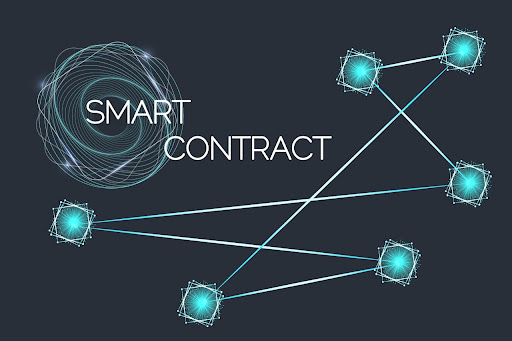Smart contracts represent one of the most revolutionary elements of blockchain technology. They are programmable contracts that automatically execute, monitor, or document events and actions within agreements based on predefined conditions. These contracts have the potential to significantly change the way transactions and assets are managed in a wide variety of areas. In this article, we will look at the basic principles of smart contracts and their application in various industries.
How smart contracts work
Smart contracts operate on the basis of blockchain technology, which ensures their transparency, security, and immutability. The principle of their operation can be divided into several key stages:
- Development and deployment: A smart contract is created and deployed on a blockchain using programming languages such as Solidity for Ethereum. A contract contains a code that defines the terms of the agreement and the actions that must be performed when those conditions are met.
- Fulfillment of conditions: When the specified conditions of the contract are met, the smart contract automatically executes the actions prescribed in it. This can be a transfer of funds, a change in the status of the record, or other actions.
- Recording in the blockchain: After the conditions and actions are met, the result is recorded in the blockchain, making it immutable and verifiable by all participants in the network.
- Auditing and verification: Blockchain allows anyone to verify the execution of a contract, which ensures a high level of trust and transparency.
Use of smart contracts
1. Financial Services
Smart contracts are widely used in the financial sector due to their ability to automate and secure transactions:
- Cryptocurrency transactions: Smart contracts are used to ensure secure and automated transactions with cryptocurrencies. For example, when selling tokens, a smart contract can automatically transfer money to the seller and tokens to the buyer.
- Derivatives and options: In traditional financial markets, derivatives and options can be complex to settle and exercise. Smart contracts can automate these processes, minimizing the risk of errors and fraud.
- Lending and Borrowing: Decentralized finance (DeFi) platforms use smart contracts to create decentralized credit markets where borrowing and repayment conditions can be fully automated.
2. Real estate
In real estate, smart contracts can simplify and speed up the processes associated with the purchase and sale of property:
- Transaction Automation: Smart contracts can automate the process of transferring ownership of real estate, eliminating the need for intermediaries and speeding up the transaction process.
- Reduced risk of fraud: Recording all transactions on the blockchain makes them transparent and verifiable, which reduces the risk of fraud.
- Tenant Management: Contracts can automate lease processes, including payments, lease term updates, and deposit refunds.
3. Logistics and supply chains

Smart contracts are also used in logistics and supply chain management:
- Tracking of goods: With the help of smart contracts, it is possible to track the movement of goods throughout the supply chain. For example, a contract can automatically update the status of a shipment when it arrives at each stage.
- Payment automation: Payment for goods and services can be made automatically when the terms of the contract are met, which simplifies calculations and reduces administrative costs.
- Inventory Management: Smart contracts can be used for automated inventory management by maintaining up-to-date inventory data and automatically ordering replenishment when needed.
4. Law and legal services
The legal field is also affected by smart contracts:
- Automate legal procedures: Smart contracts can automate the execution of agreements, making it easier to fulfill legal obligations and reduce the need for intermediaries.
- Intellectual Property: Smart contracts can be used to manage intellectual property rights, ensuring that licensing terms and copyright are automatically enforced.
- Regulatory compliance: Smart contracts can help in automatically complying with regulatory requirements such as compliance and reporting.
5. Healthcare
In the healthcare industry, smart contracts can bring significant changes:
- Medical records management: Smart contracts can be used to manage patients' medical records, ensuring that they are secure and accessible only to authorized users.
- Insurance Payment Automation: Smart contracts can automate the insurance payout process based on medical data and insurance policy terms.
- Research management: In scientific research, smart contracts can be used to manage funding, comply with grant conditions, and monitor research execution.
Conclusion
Smart contracts are a powerful tool that can change many aspects of various industries. Their use can lead to significant cost reductions, increased transparency, and reduced risk of fraud. However, the implementation of smart contracts also requires solving a number of challenges, such as security, scalability, and regulatory issues. However, their potential to transform various fields of activity remains enormous, and their impact on the future of technology and business cannot be underestimated.
